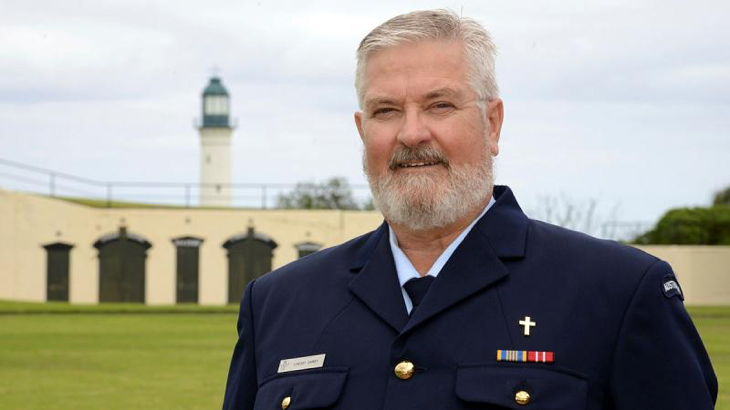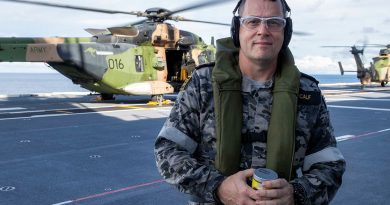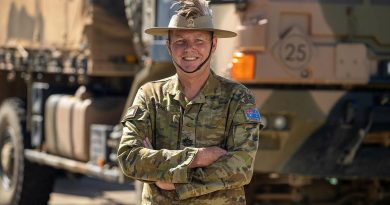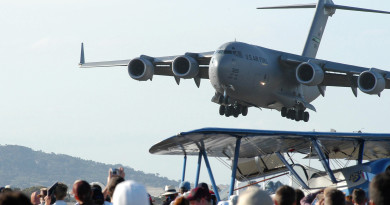Aiding healing from moral injury

After Defence-approved research found about 62 per cent of air force veterans may have some type of moral injury, Chaplain (Wing Commander) Lindsay Carey helped develop resources to reduce potential effects.
CAPTION: Royal Australian Air Force officer, Wing Commander Chaplin Lindsay Carey at Fort Queenscliff in Victoria. Story by Corporal Luke Bellman. Photo by Warrant Officer Don Kenny.
“I became really concerned about the number of veterans who were potentially being diagnosed with PTSD and yet their deep-set problem may not just be PTSD but actually a moral issue,” Chaplain Carey said.
The moral injury skills training he helped design was based on research by Chaplain (Wing Commander) Timothy Hodgson, which Chaplain Carey supervised, and been used to train Defence’s 250 chaplains in a new strategy known as pastoral narrative disclosure.
Despite not wanting attention he has received a Conspicuous Service Medal for his work.
“I’ve tried to be inconspicuous by working behind the scenes trying to add to the training and education of chaplains,” he said.
Defence’s chaplaincy branches pulled together to be proactive in resolving potential morally injurious effects that can lead to suicidal behaviour.
Ninety-five per cent of chaplains said the program was perfect for helping them to understand and implement moral injury rehabilitation strategies.
The award citation notes that the Pastoral Narrative Disclosure moral injury program has been recognised within the US and the UK.
Chaplains from other contexts such as the police and community have also undertaken what has become known as the moral injury skills training course.
The ADF defines moral injury as a trauma-related syndrome caused by the physical, psychological, social and spiritual impact of grievous moral transgressions, or violations of an individual’s deeply held moral beliefs and/or ethical standards.
It can be caused by an individual perpetrating, failing to prevent, bearing witness to, or learning about inhumane acts that result in the pain, suffering or death of others and which fundamentally challenges the moral integrity of an individual, organisation or community.
It can also be the subsequent experience and feelings of betrayal of what is right by trusted individuals who hold legitimate authority.
Chaplain Carey’s research into moral injury and other research from overseas corroborate that veterans were sometimes doing or witnessing things incongruent with their values, even when they supposedly did the ‘right’ thing.
“They can sometimes feel guilt and shame about following orders that led to the injury or death of other people, whether it be civilians or other Defence Force members,” Chaplain Carey said.
Moral injury is now a syndrome under review by the American Psychiatric Association to be included in the Diagnostic Statistical Manual of Mental Disorders.
“People forget however that moral injury, and also PTSD, have a social spiritual impact on people,” Chaplain Carey said.
“Moral injury is a bio-psycho-social-spiritual syndrome and thus our spirituality is also important because it’s the crucial part that helps develop our ethics and our morality.
“Given the increasing recognition of the links between moral injury and suicidal behaviour, the Australian Defence Force are being champions by proactively addressing the effects of moral injury now – before it becomes a major problem.”
As a result of the research regarding moral injury and veterans, the Australian Defence Force and the Australasian Military Medicine Association are supporting the inaugural International Moral Injury and Wellbeing Conference in Brisbane in September 2024.
.
.

.
.





